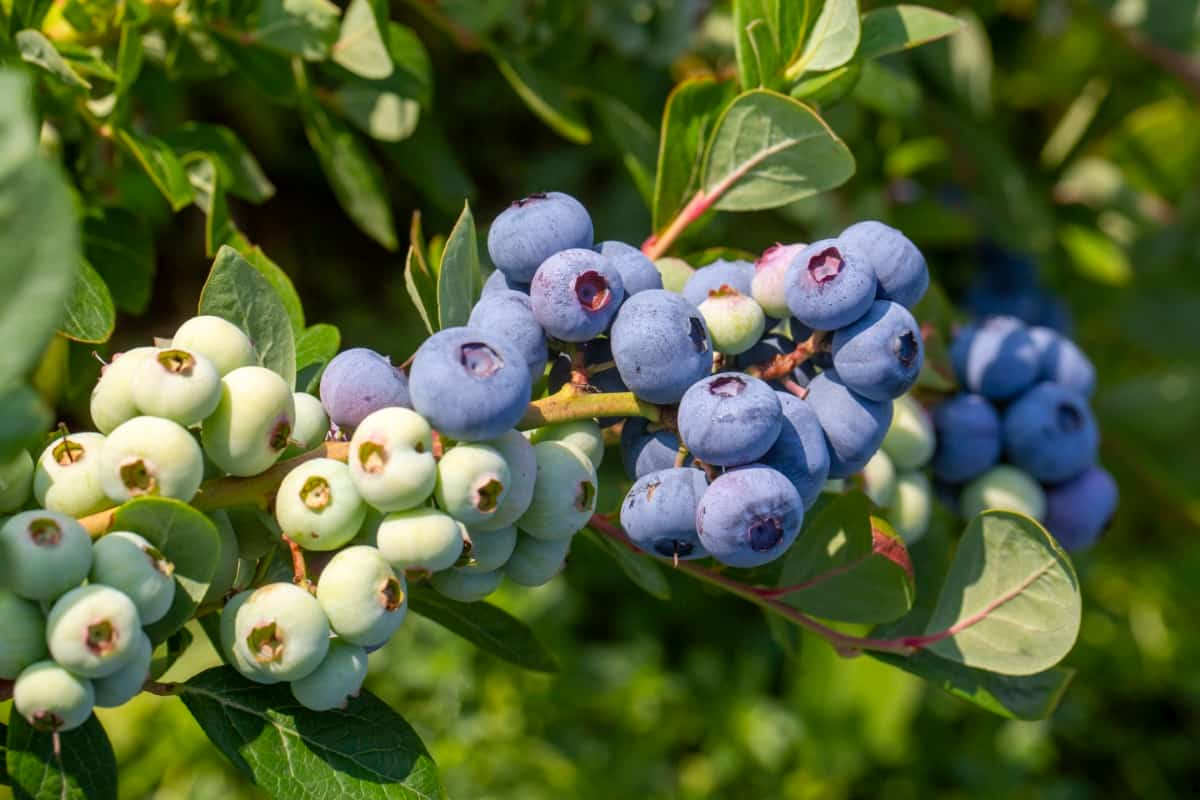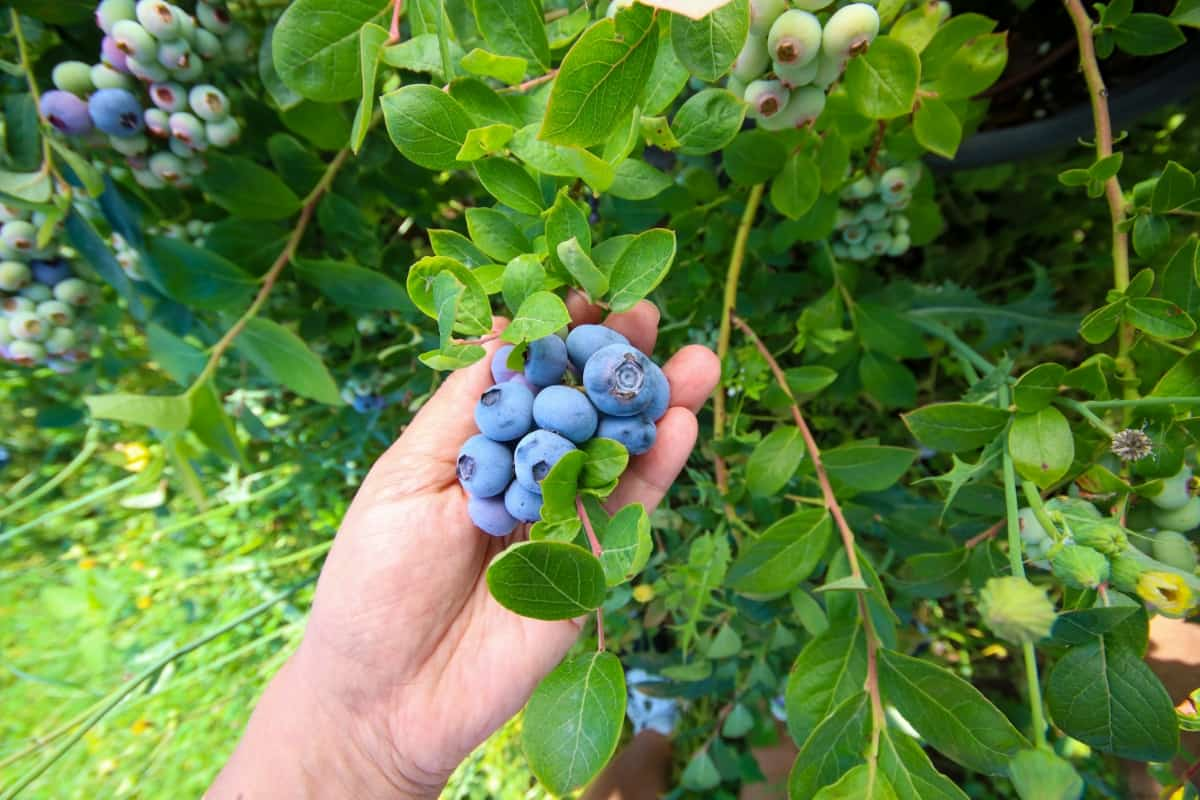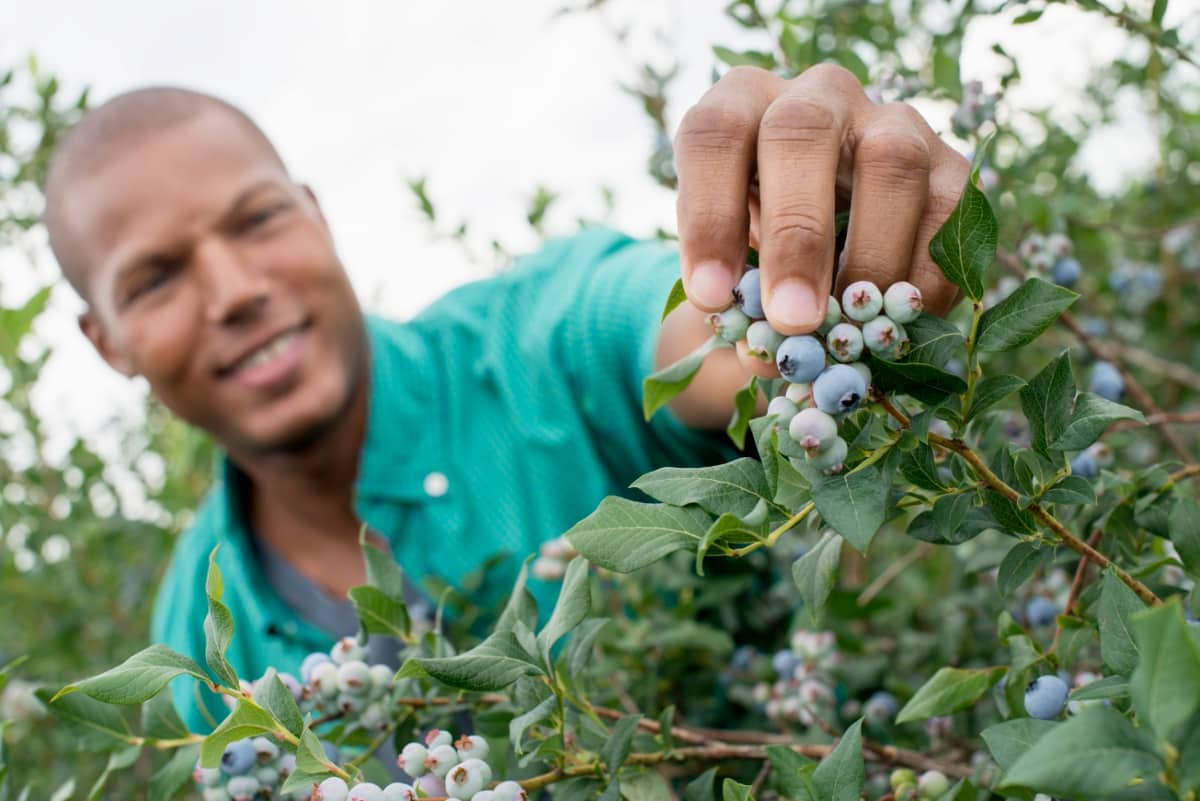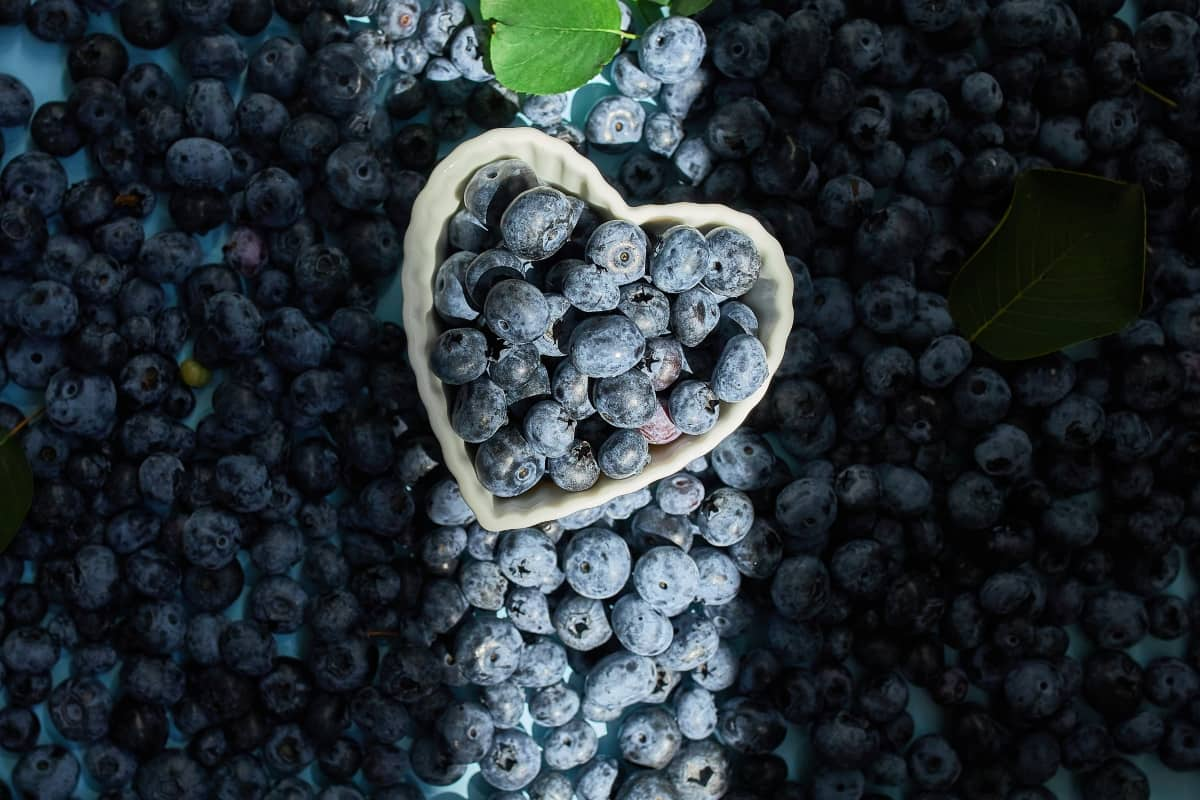Discover how to use organic treatments to avoid fruit rot in blueberries naturally. Learn the significance of establishing cultural practices for illness resistance and creating a healthy atmosphere. For optimum blueberry health, find out about organic soil additives, helpful companion plants, and do-it-yourself sprays. If you want to see long-term success in your blueberry patch, adopt sustainable practices.

How to Prevent Blueberry Fruit Rot Naturally
Understanding Blueberry Fruit Rot
Botrytis cinerea and Colletotrichum acutatum are two prevalent fungal infections that cause blueberry fruit rot. Comprehending this issue is essential for successful mitigation. The fungus grows best in damp environments, infecting flowers and then moving on to fruits in the rainy season. Keeping an atmosphere that is well-drained is essential to preventing this.
Organic treatments like neem oil and copper-based sprays provide natural remedies. By implementing cultural techniques such as appropriate spacing and pruning, humidity is reduced, which inhibits the growth of rot. Routinely keeping an eye out for indicators like brown lesions aids in early detection. By combining these tactics, blueberries become healthier and produce a larger crop.
Importance of Natural and Organic Treatment
The importance of using natural and organic treatment methods in blueberry growth cannot be emphasized. Organic therapies maintain environmental balance, protecting adjacent ecosystems and plants alike, in contrast to synthetic chemicals. These techniques support soil health and biodiversity while advancing sustainable farming approaches.
Blueberry plants that have received organic treatment are more robust and have stronger natural defenses against diseases and fruit damage. Growers that adopt these options create a more balanced and healthy agricultural landscape in addition to protecting their harvests. This turn to organic solutions fits in with a larger trend toward environmentally friendly and sustainable farming methods.
Creating a Healthy Blueberry Environment
To stop fruit rot naturally, you must provide your blueberries with a healthy atmosphere. Make sure the soil drains well and has a pH of 4.0 to 5.5 because blueberries prefer an acidic environment. Mulching around plants controls soil temperature and helps preserve moisture. Maintain the appropriate distance between bushes to promote airflow and lower the surrounding humidity of the plants.
Add organic matter, such as different compost, to improve microbial activity and soil fertility. Getting at least six hours of direct sunshine each day is crucial for adequate solar radiation. By creating an ideal growth environment and strengthening blueberries against fruit rot, this all-encompassing method enhances overall plant health.
Cultural Practices for Blueberry Rot Prevention
Cultural traditions greatly aid the natural prevention of blueberry fruit rot. First and foremost, make sure blueberry bushes are properly spaced from one another to improve air circulation, lower moisture levels, and ward off disease. Second, prune often to keep the canopy open, which encourages light penetration and prevents the formation of fungi. The amount of moisture on berries is reduced when drip irrigation is used in place of overhead watering.
In case you missed it: Managing Pests and Diseases in Blueberry Farms: Prevention and Control

Furthermore, mulching using organic materials aids in controlling temperature and moisture in the soil. Adding acidic organic matter to the soil improves its structure and overall health, which helps the blueberry plant fight rot. Together, these cultural customs create an atmosphere that is inhospitable to microorganisms that cause rot, so organically protect your blueberry harvest.
Beneficial Companion Plants for Blueberries
Blueberries thrive in environments with plants that are complementary to them. Because of marigolds’ inherent ability to repel pests, blueberries are protected from damaging insects. Cover crops like clover improve soil fertility by fixing nitrogen and supplying vital nutrients. As a natural barrier, nasturtiums keep pests away and encourage a symbiotic relationship.
Garlic and chives have antifungal qualities that protect against fungus-related diseases. These allies provide a balanced ecology that reduces the need for chemicals and promotes a healthier setting for blueberries to grow in the wild. Including these allies increases the resilience of the garden as a whole and encourages sustainable blueberry farming.
Organic Soil Amendments for Disease Resistance
Organic soil additions are essential in increasing blueberry plants’ resilience to disease. A balanced and healthy environment is created in the soil by adding well-decomposed compost. This introduces helpful microorganisms. These microbes serve as the body’s natural defense against dangerous diseases that can lead to fruit rot.
Compost also promotes overall plant vigor by improving drainage, soil structure, and nutrient availability. Vermicompost is another useful amendment since it is nutrient- and microbe-rich. Incorporating these organic elements into your garden on a regular basis can help to maintain long-term soil health and sustainability while also strengthening your blueberry plants’ resistance to disease.
Homemade Organic Sprays for Blueberry Protection
Making your organic sprays is a cost-efficient and environmentally responsible approach to protect blueberries from harm. To begin, mix water and neem oil, which is a natural fungicide and insect repellent. This blend encourages plant health and serves as a pest deterrent. Garlic and pepper spray is also an effective deterrent to common pests of blueberries.
One way to improve resistance to disease is by using a baking soda solution. To make a barrier that protects, combine one gallon of water with four tablespoons of baking soda. Applying these sprays on a regular basis—especially throughout the growing season—offers a chemical-free, environmentally friendly way to protect your blueberry bushes against pests and fruit damage.
Proper Watering Techniques for Blueberry Health
Knowing how to water blueberries properly is essential to their optimum health. Blueberries need a steady supply of moisture, but only a little. Aim for one to two inches of water per week, either irrigation or rainfall, for deep root growth; water deeply but sparingly. Installing a drip irrigation system will minimize the amount of moisture on the leaves by delivering water straight to the roots.
In case you missed it: 1-Acre Blueberry Farming Project Report: Production Economics, Profit, and Cost Analysis

To prevent evaporation and keep soil moisture, mulch the area surrounding plants. It is best to water in the morning so that the leaves can dry out and avoid sickness during the day. Regularly monitor the moisture percentage of the soil and modify the frequency of watering in accordance with the weather to ensure healthy, disease-resistant blueberry bushes.
Beneficial Insects for Natural Pest Control
Beneficial insects play a crucial role in natural pest control, aiding gardeners in maintaining a healthy balance. Ladybugs, also known as lady beetles, are voracious aphid eaters. They consume up to 5,000 aphids during their lifetime. Lacewings are another ally, devouring aphids, mites, and small caterpillars.
Predatory beetles, like ground beetles, feed on soil-dwelling pests such as cutworms and caterpillar larvae. Parasitic wasps lay eggs on or inside pest insects, controlling their populations effectively. By attracting and fostering these beneficial insects, gardeners can reduce the need for chemical treatments, promoting a sustainable approach to pest management.
Mulching Strategies for Blueberry Fruit Rot Prevention
One of the most important natural defenses against blueberry fruit rot is mulching. To start, use organic mulches, such as wood chips or straw, to form a barrier of protection around blueberry bushes. By shielding the soil this stops organisms that cause illness from splashing onto berries during irrigation or rain.
Cover the root area of the plant with a 2 to 4-inch layer of mulch. Mulching also helps retain moisture, which is important for the health of blueberries. Additionally, it controls soil temperature, which creates ideal growing conditions for blueberries. To keep mulch effective and strengthen the defense against fruit rot in a sustainable and environmentally friendly way, remember to replenish it once a year.
Frequently Asked Questions (FAQ) on Blueberry Fruit Rot
Can Birds Contribute to the Spread of Blueberry Fruit Rot?
Birds can inadvertently spread the disease by pecking at infected berries. Implement bird netting or other protective measures to prevent birds from accessing your blueberry crop, reducing the potential for disease transmission.
Can I Use Pine Straw as Mulch for Blueberry Fruit Rot Prevention?
Yes, pine straw is a suitable mulch for blueberries. It provides the benefits of moisture retention, temperature regulation, and a protective barrier against soil-borne pathogens, contributing to effective Blueberry Fruit Rot prevention.
In case you missed it: Essential Equipment and Tools for Blueberry Farming

Conclusion
Safeguarding blueberries from fruit rot naturally involves a holistic approach. Implementing organic soil amendments, adopting proper watering practices, and selecting disease-resistant varieties is key. Complementing these with homemade organic sprays, beneficial insects, and vigilant monitoring ensures a thriving, resilient blueberry garden. Embracing sustainable methods fosters long-term health and productivity.
- Feed Your Flock for Less: Top 10 Tips to Save on Chicken Feed
- Ultimate Guide to Ossabaw Island Hog: Breeding, Raising, Diet, and Care
- Hatching Answers: The Top 10 Reasons Your Chickens Aren’t Laying Eggs
- Eggs and Economics: Breaking Down the Cost of Raising Backyard Chickens
- Defend Your Greens: Proven Methods to Keep Iguanas Out of Your Garden
- Ultimate Guide to Cinnamon Queen Chicken: A Comprehensive Guide for Beginners
- Ultimate Guide to California Tan Chicken: Breeding, Raising, Diet, Egg-Production and Care
- Ultimate Guide to Marsh Daisy Chicken: Breeding, Raising, Diet, and Care
- 10 Types of Chicken Farming Businesses You Can Start for Profits